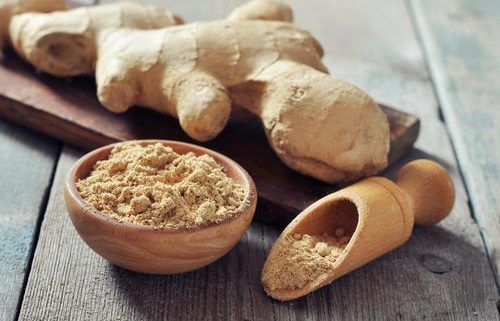Herbal Remedies for Winter
Herbal remedies is not just found at the herbalist’s but also in your kitchen cupboard. Winter is a prime time for colds and coughs, there are many herbal remedies that can help and many of the medicinal herbs involved can be found in your herb and spice racks. Delicious recipes that fight off colds and coughs can be made from easily sourced fruit and vegetables.
More than 90% of coughs and colds are caused by viruses, these do not respond to antibiotics and can be treated much more effectively by natural foods and herbal remedies. Many people swear by the herbal remedy Echinacea and there have been a number of research studies into the medicinal uses of this herb. Garlic is interesting, a study of 146 people showed that those who ate garlic every day for three months caught fewer colds. Garlic has both antimicrobial and antiviral properties. There is a wonderful soup that would ward off any cold called “Five onion soup”, which includes onions, shallots, garlic, leeks and spring onions that is both tasty and medicinal.
Natural Herbal Remedies

Many people take Vitamin C supplements to prevent colds and coughs, however, it is far better to get Vitamin C (and most other Vitamins) from natural sources such as food, herbs and spices. When you eat foods rich in Vitamin C you are also getting a range of valuable antioxidants and the Vitamin C is easier for the body to access.Many fruits and vegetables are rich in Vitamin C such as oranges, satsumas, lemons, pineapples, mangoes, kiwi fruits and berries as well as vegetables like broccoli, cabbage, kale, cauliflower, courgettes, celery and peppers and herbs like parsley and watercress.
If you have a nasty cough or are choked up with the cold herbal teas that can help are: fennel, marjoram or oregano, thyme and peppermint. These can be used as individual teas or mixed together as herbal infusions.
The Herbal Doctor
The medicinal uses of most common culinary herbs and spices are the same across the different herbal traditions of Chinese herbal medicine, Western herbal medicine and Ayurvedic medicine.
Spices are wonderful warming herbs that are both medicinal and add flavour to winter cooking.
Ginger, turmeric, cinnamon, cardamom, cumin and nutmeg can be added to soups, stews and baking as natural herbal remedies.
Ginger belongs to the Zingiberaceae family and is closely related to turmeric, cardamon and galangal. Ginger contains Gingerol a substance with powerful medicinal properties. It helps digestion, reduces nausea and helps fight colds and flu. In Chinese herbal medicine it is also used for pain relief; abdominal, menstrual and muscular.
Turmeric is one of the present day super foods. it contains bioactive compounds with powerful medicinal properties, the most important of which is Curcumin. Curcumin has powerful anti-inflammatory effects and is a very strong antioxidant. It is very effective in fighting off colds and flu as it is both antibacterial and antiviral. In Chinese herbal medicine it is also used for muscular and joint pains, especially those aggravated by the cold and wind.
Soups and stews, particularly those using warming root vegetables like carrots, parsnips, swedes and potatoes can be jazzed up with these herbal spices, particularly ginger, cinnamon, turmeric and nutmeg and made into natural, delicious herbal remedies.



